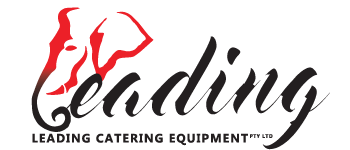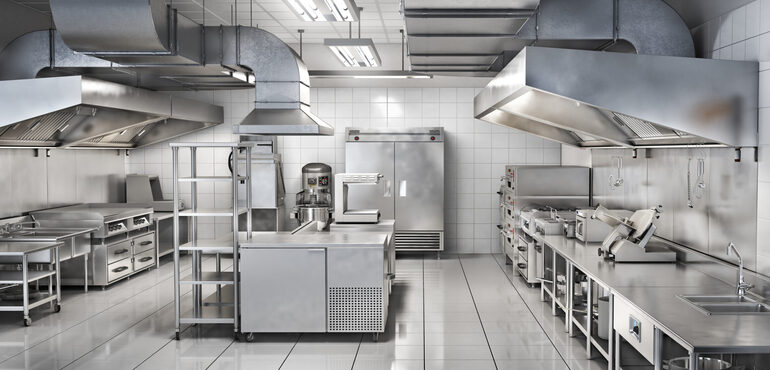Buying second-hand commercial kitchen equipment can be an affordable way to decorate your restaurant or café, particularly if you're starting your business or looking to branch out. However, purchasing used appliances has its own set of difficulties. It's essential to guarantee that the products you spend money on are working and long-lasting enough to survive the challenges of a busy pantry. We have provided some tips below to help you make knowledgeable decisions when buying second-hand commercial appliances.
Are you looking for a cooling appliance for your trendy bar? Check out our collection of wonderful Bar Fridges.
Check out the Model and Brand
Before even thinking about buying a second-hand product, study everything about the brand and model of the product you want to buy. Some brands are famous for their long-lasting features and extended lifespan. However, others may not be as trustworthy. Research user testimonials, industry thoughts, and any available performance metric. If you know which companies and models are popular for longevity, it will assist you in making a better choice.
Study the Appliance for Physical Damage
Physical inspection is one of the most crucial steps when buying second-hand products for your kitchen. Search for symptoms of depreciation and tear. These signs include rust, chips, cracks, or missing components. Look at the model's structural strength to confirm that it hasn't been weakened. The stainless steel offerings suffer no serious corrosion, which could impact the product's working and cleanliness.
Give special focus to handles, hinges and other moving components. These parts are often the first to depreciate. Therefore, changing them can be expensive. If possible, turn knobs, open and close gates and check other mechanical components to confirm whether everything is working fine.
Check the Appliance in Action
Whenever you can, ask the supplier to allow you to test the commercial catering equipment. This point is vital, as it lets you see how the machine works under genuine working conditions. For instance, if you're purchasing a second-hand oven, warm it to different temperatures to test it. Once done, check how swiftly it responds. If you want to buy a mixer, operate it as per your needs to look for any strange sounds or vibrations.
Studying the product can expose hidden problems that aren't instantly obvious during a visual examination. If the supplier is reluctant to let you check the machine, it may be an indication that something is not right.
Look for Proper Paperwork
Ask the supplier for any available paperwork or documentation connected to the equipment. These papers include user guides, upkeep records, and warranty cards. Documentation can offer crucial information on how expertly the appliance has been used & preserved and whether any maintenance work has been done. A well-kept commercial offering with proper documentation is often a more secure investment than one with no paperwork to speak of.
Warranty details are especially crucial. Even if the appliance is used, some sellers provide extended warranties that one can offer to new owners. This feature could save you money on prospective repairs in the future.
Check the Age of the Machine
While some kitchen appliances can last for a long time, it's critical to look at the age of the machine you're buying. Older equipment may not have the same power-saving capabilities or security attributes as the latest models. This factor could impact your kitchen's operational expenses and adherence to health and safety regulations.
Age can also affect the easy availability of substitute parts. Finding components for repairs could be challenging and costly if the product is no longer manufactured. Always compare the prospective cost savings of purchasing older appliances against the risks in the long run and upkeep costs. For further information, visit LCE – the one-stop destination for commercial kitchen equipment for sale.
Get the best cooktop for your kitchen with auto ignition & adjustable feet. Check out our Burner Cooktop options.
Examine Power Saving Features
Power efficiency is crucial when buying commercial kitchen equipment, especially in places like Sydney or Brisbane, where utility costs can be high. Older appliances are often less power-effective than newer offerings, which could result in more operating expenses in future.
Check Energy Star ratings or labels when checking used machines. Compare the power usage of used equipment to that of newer products to decide if the savings on the buying price are more than the potential gain in power bills. Spending money on slightly latest, more high-performance models might be more affordable in the long run.
Inquire About the Product's History
Knowing about the history of the appliance can offer you precious information related to its current condition and prospective working span. Inquire from the supplier about the last use of the, its operating frequency, and the reason for its sale. Products that were employed in a high-capacity pantry may suffer more wear and tear than models belonging to a smaller, less busy diner.
If the seller is trusted, there should be no difficulty in getting this detail. You may need to depend on the seller's truthfulness regarding this purchase, so use common sense when checking their responses.
Look for Remodelled Options
Some used product dealers where you shop commercial kitchen equipment offer renovated items. These products can be a fantastic middle path between purchasing new and buying second-hand. Such products usually undergo comprehensive checking, cleaning, and maintenance to ensure they are in good working order. While the price of remodelled products might be more than non-refurbished used offerings, it often is available with some kind of warranty, providing additional peace of mind.
When thinking about refurbished appliances, ask for information on what was renovated and whether any parts were changed. This detail can help you evaluate the quality and longevity of the product.
Check whether Spare Parts & Services is Available
Before purchasing second-hand equipment, research the availability of spare components and service providers in your area. Even the most well-cared of appliances will sometimes need maintenance. Having comfortable access to components and experienced technicians plays a huge role in controlling downtime.
Check with local service givers to see if they have worked on the specific brand and offering you're thinking about buying. If parts are hard to find or the service is not available, you should reconsider buying.
One premium and durable stainless steel product is a Workbench with Splashback. Check out our offerings now.
Indulge in Bargaining
Finally, feel free to bargain on the price. These types of commercial kitchen appliances have no fixed market price. Besides, sellers often anticipate haggling & bargaining by buyers. If you have found any problems during your inspection, use that as leverage to get a better deal. For instance, suppose the appliance has cosmetic deterioration or is missing paperwork. In that situation, you can make a lower offer using this excuse.
If the seller is not reducing the price, think about asking for more items to be included in the sale, such as additional accessories or delivery facilities. A little bargaining can have a considerable effect on getting the best value for your money.
Conclusion
Buying second-hand kitchen equipment can be a smart and economical choice. Still, it requires careful consideration and thorough inspection. By following these tips, you can ensure that you're making a sound investment that will serve your kitchen well for years to come. Remember, the goal is to save money upfront and invest in equipment that will continue to perform reliably under the demands of a busy commercial kitchen.






